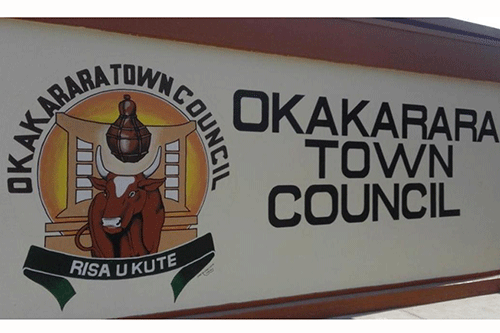Missing financial documents, a dormant inventory system and unexplained bank transactions are some of the key highlights in Auditor General Junias Kandjeke’s report on the affairs of the Okakarara Town Council, which got an adverse audit opinion.
Kandjeke’s damning report on the Okakarara Town Council (OTC), which was released to Parliament in April this year, comprehensively covers the 2017, 2018, 2019 and 2020 fiscal periods.
The audit unearths an assortment of inadequacies with regards to financial management and record-keeping, which resulted in an adverse audit opinion over the recorded four years.
An auditor’s adverse opinion is the worst there is, as it states that the financial statements do not fairly present the financial position, results of operations, or cash flows of the entity, in conformity with generally-accepted accounting principles.
For the financial year ending June 2017 [2016-2017], the town council failed to provide supporting documents for selections made for sundry income amounting to N$180 991, while the very same worrying trend of not submitting vital financial documents to the AG were equally observed in 2018, 2019 and 2020.
“Included in the sale of ervens’ income account are Build Together instalment receipts amounting to N$1.3 million (2019: N$ 1 million), which do not form part of sales of ervens. Listing for sales of ervens sold during the year amounting to N$1.5 million was not available for audit verification for the financial year ending June 2018. Furthermore, agreements of sales and ministerial approval letters were not available for verification of sales of ervens amounting to N$528 030, (2019: N$2.2 million) and (2017: N$2.4 million).”
“Street subsidy in the financial statements amounting to N$1.2 million, (2019: N$944 433) and (2018: N$ 650 998) differs to the amount in the confirmation letter of N$1.4 million (2019: N$1.1 million) and (2018: N$ 748 649), resulting in a difference of N$244 577, (2019: N$145 567) and (2018: N$97 651). The audit also noted an unsupported adjustment of N$175 671 in the bank reconciliation. Therefore, the auditors could not confirm the completeness and valuation of the bank reconciliation at year-end for the 2017 financial year,” Kandjeke stated.
He continued: “Also noted is that the subsidy from the line ministry recorded in the general ledger amounting to N$694 783 differs to the amount in the confirmation letter of N$799 000, resulting in a difference of N$ 104 217 for the financial year ending 2018. These differences are due to the council wrongly deducting value-added tax on the subsidies received when processing it to the general ledger,” the AG pointed out.
Kandjeke, who has been the country’s auditor general for the past 20 years, also took serious issue with the town council’s invoices for refunds on expenditure, which do not correlate with the institution’s financial statements.
“Invoices for refund on expenditure amounting to N$171 786 and (2019: N$258 060) do not agree to the financial statements’ balance of N$118 876 and (2019: N$18 942) resulting in a difference of N$52 910 and (2019: N$239 118), respectively,” the AG said.
“Also, local authority surcharge income recorded on the annual audited financial statements for CENORED amounting to N$428 000 and (2019: N$505 000) does not agree to the balance recorded on the general ledger of the council amounting to N$478 757 and (2019: N$260 771), resulting in a difference of N$50 757. The list of informal settlements’ consumers amounting to N$1 830 286 could not be verified for 2019,” he added.
Kandjeke advised the town council’s leadership to ensure that there is a clear policy on the recognition of sales of ervens, and that supporting documents are provided for audit purposes.
The accounts which are not vatable should be properly and correctly recorded on the financial system, he urged.
The town council’s proper examination by the auditor was further complicated by a dormant stock inventory system, which was not recorded in the financial statements of 2017, 2018, 2019 and 2020.
It was recommended that the council should ensure that an inventory count is conducted annually, and a valuation of the inventory is done based on the accounting policy of the council.
– ohembapu@nepc.com.na


